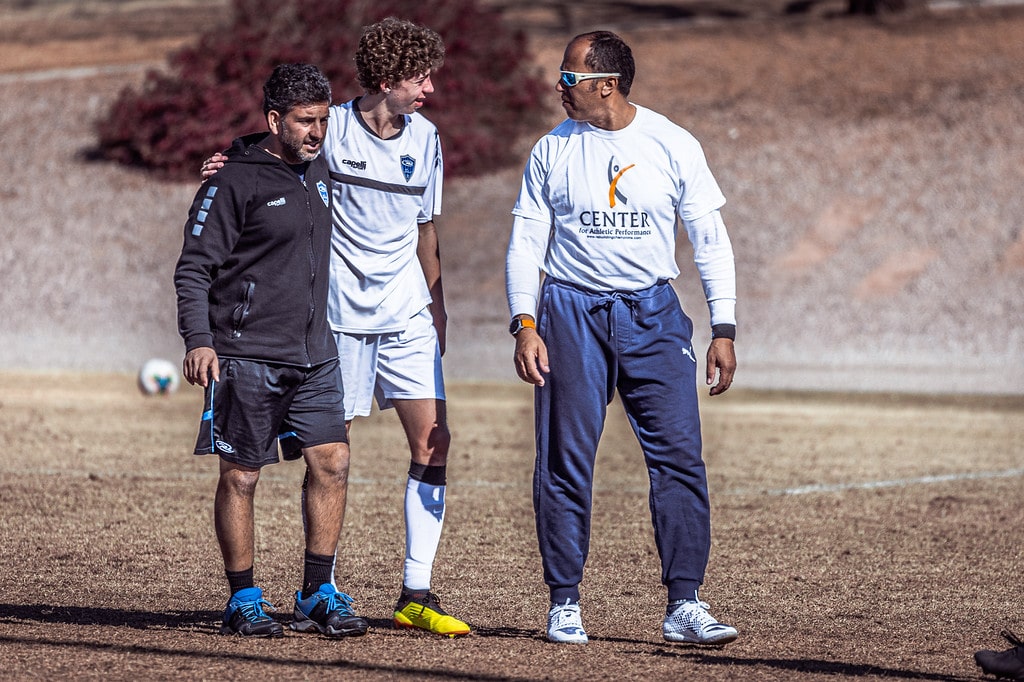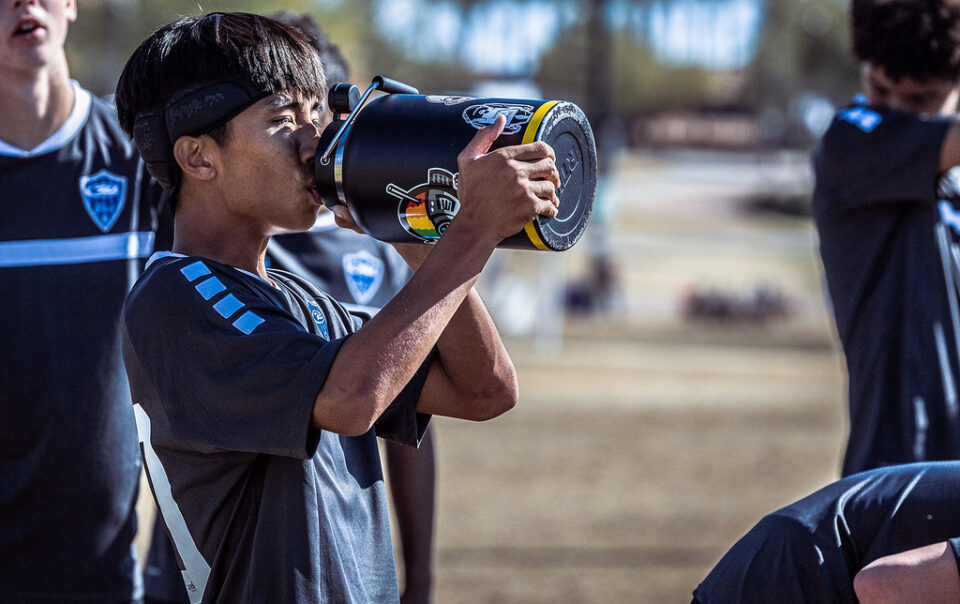This article was written by Pablo Toledo, Rush Soccer’s Sporting Project Director.
We love playing tournaments. The environment can be so great and exciting. Now, from a physical point of view, we know that tournaments for post puberty players can represent a tremendous overload, and we constantly fear for injuries. In most tournaments, you play at least three games in three days, normally four if your team won enough points to make it to the final.
We teach coaches to be mindful of this and try to balance physical loads attending tournaments with large rosters and giving equal playing time but anyhow, it is still a lot of effort, so what can we do before, between, and after games to try to help players recover as much as possible?
In the post about Performance Plates, Amanda Turner, our invited sport dietician, already highlighted the importance of timing to eat, so tip #1 is about nutrition: Before the game, we want to eat carbs, and after the game (within one hour), we need carbs and protein to rehydrate, re-accumulate glycogen levels, and for muscle synthesis. In simple terms, a way of doing this could be to eat pasta or bread or crackers (just to exemplify on carbs) in our last meal prior to the game and drinking a sports drink after the game (and in half time too if desired) or a protein shake or a protein bar and water in all cases. Another comment about nutrition, even if this sounds obvious, would be to make sure we don’t eat much more than a snack in the last 2-3 hours prior to the game, and lastly, I would recommend sticking to foods that are familiar. In the post 7 Nutritional Tips For Soccer Players we mention that. You know… people are strange… and different, so you don’t know how something new is going to sit until you eat it. Better to experiment another day. Oh, and one more thing, maybe avoid eating a lot of red meat between games if you’re playing two the same day, just because fat takes longer to digest. I would stick to lean proteins on days like this.

Tip #2 and one that I usually make jokes with in my teams is: Go shower! Getting a good hot bath helps us relax and ease muscle soreness, and everybody around you will appreciate it as well 😉 If you’re lucky to have a jacuzzi, go for it, we’ll be jealous. Cold therapies are also good for recovery if you like them better.
Tip #3 is to relax. A very simple routine that I recommend to my players is to take a shower and then get comfortable and raise legs against the wall for 10-15 minutes. I encourage them to play some music with their phones or similar. Legs up can help with the swelling and it’s overall simply relaxing after the type of effort that soccer implies.
I personally don’t recommend a regenerative jog after or between games, but that’s purely an opinion. Why? Because I hated doing it as a player. ‘I was just running, if there’s one thing that I’m tired of doing is jogging, especially without the ball’. That’s how I felt. Especially if we had just lost the game, it almost felt like a punishment to be sent to jog.
Last tip #4, this one is for awareness even if it is more related to the coach and the player than the parent: Shorten the warm up! Sometimes we find routines and we take them as absolute truths, losing our common sense, forgetting that right and wrong can be context specific (at least in soccer). If you play four games in three days, do we need to start warming up 45 minutes prior to the game and do it intensely? That’s adding 180 minutes of effort, two more full time games. Maybe shorten and lower the intensity to the minimum necessary to ensure readiness to compete, use energy wisely!









